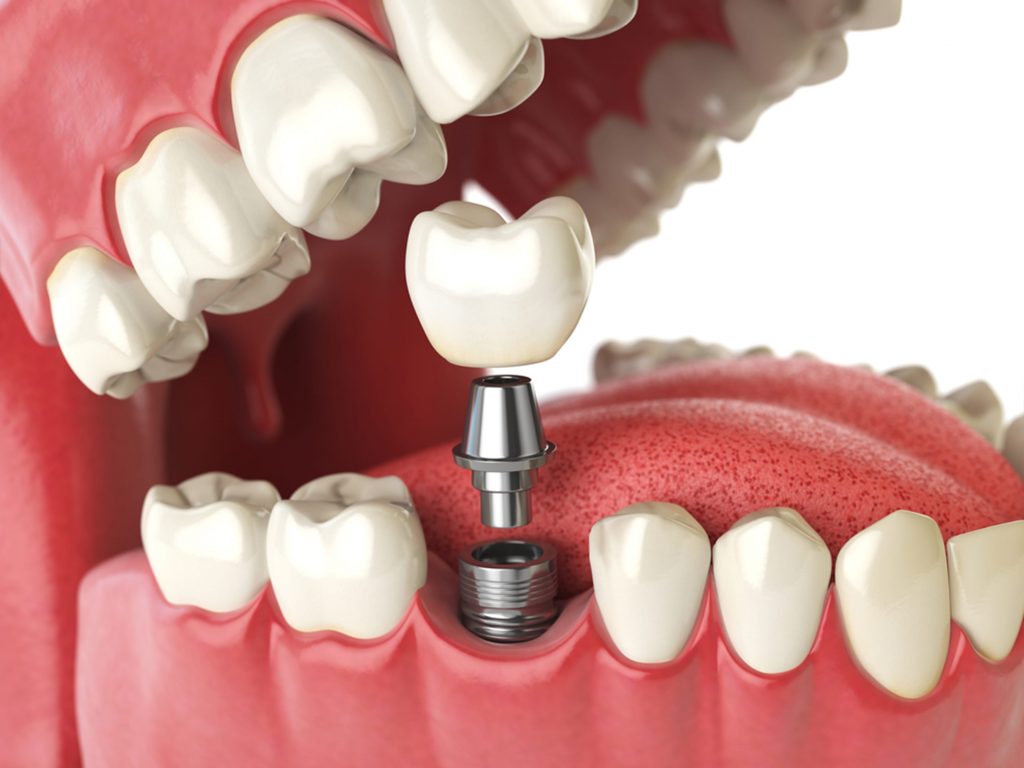Dental implants are an excellent solution for those seeking to replace missing teeth. They provide a durable, natural-looking alternative to traditional dentures and bridges. However, not everyone is an ideal candidate for this procedure. To determine if dental implants are the right choice for you, it’s essential to evaluate your oral health, medical history, and other factors. In this article, we will explore the best candidates for Dental Implants and who should consider them.
What Are Dental Implants?
Dental implants are titanium posts surgically placed into the jawbone to replace missing tooth roots. These implants act as a stable foundation for attaching custom-made crowns, bridges, or dentures. Over time, the implant fuses with the bone in a process called osseointegration, ensuring long-lasting support for your new tooth.
- Natural look and feel: Dental implants mimic the look and function of natural teeth.
- Durability: With proper care, dental implants can last a lifetime.
- Improved function: Implants restore the ability to chew, speak, and smile with confidence.
Ideal Candidates for Dental Implants:
While dental implants are an excellent option for many people, certain criteria must be met to ensure the success of the procedure. The ideal candidate should have healthy gums, sufficient bone density, and good overall health.
- Healthy gums: Healthy gums free from infection are essential for the successful placement of dental implants. If you have gum disease, it must be treated before proceeding with implants.
- Sufficient bone density: Adequate bone structure in the jaw is crucial to support the implants. If you’ve experienced bone loss, bone grafting may be necessary before implant placement.
- Good overall health: Individuals who are in generally good health, especially those without uncontrolled chronic conditions such as diabetes, are more likely to benefit from dental implants.
Age Considerations for Dental Implants:
Dental implants are suitable for adults of various ages, but there are specific age-related considerations. Generally, dental implants are most effective for individuals who have finished growing, typically around the age of 18 for females and 21 for males. However, age is not necessarily a limiting factor as long as you are in good health.
- Adulthood: Implant procedures are most common among adults aged 30-60, although older adults can also be successful candidates.
- Sufficient jawbone maturity: It’s essential that the jawbone has fully developed before implant placement, which is why younger patients are typically not considered ideal candidates until growth is complete.
Health Conditions That May Impact Eligibility:
Certain health conditions can affect your ability to undergo dental implant surgery or your recovery process. It’s important to discuss your medical history with your dentist to ensure dental implants are a viable option.
- Uncontrolled diabetes: Diabetes can slow down healing and increase the risk of infection, which can affect the success of dental implants.
- Osteoporosis: Conditions that affect bone health may require special consideration when it comes to implant placement.
- Smoking: Smoking can impede healing and increase the risk of implant failure, so it is advisable to quit smoking before undergoing dental implant surgery.
- Other chronic health issues: Conditions like heart disease or autoimmune disorders can impact your ability to recover after surgery and should be discussed with your dentist before proceeding.
Lifestyle Considerations for Dental Implants:
While dental implants offer a permanent solution to missing teeth, it’s important to consider your lifestyle and how it may affect your decision. A commitment to good oral hygiene and follow-up appointments is crucial for the success of dental implants.
- Commitment to oral hygiene: Since dental implants require regular brushing, flossing, and professional check-ups, candidates must be committed to maintaining oral hygiene.
- Ability to avoid damaging habits: People who have habits like teeth grinding or poor diet choices may need to make lifestyle changes to ensure the longevity of their implants.
- Financial readiness: Dental implants are typically more expensive than other options, so it's important to be financially prepared for the cost, including any additional treatments like bone grafting.
Benefits of Dental Implants for Eligible Candidates:
For those who meet the criteria for Dental Implants, the benefits are significant. Dental implants provide a permanent, aesthetically pleasing solution for missing teeth, offering better functionality than traditional dentures or bridges.
- Improved appearance: Dental implants restore the natural appearance of your smile, blending seamlessly with your remaining teeth.
- Increased comfort: Implants are more comfortable than dentures because they do not shift or cause irritation to the gums.
- Long-term durability: With proper care, dental implants can last a lifetime, offering greater value over time compared to other temporary tooth replacement options.
In conclusion, dental implants are a fantastic solution for many individuals who are missing teeth, but they are not suitable for everyone. The best candidates for dental implants are those with healthy gums, sufficient bone density, and good overall health. Age and certain health conditions can affect eligibility, but with the right preparation, many people can benefit from this procedure. If you think dental implants might be the right choice for you, consult with a qualified dentist to determine whether you're a good candidate and begin your journey to restoring your smile.

